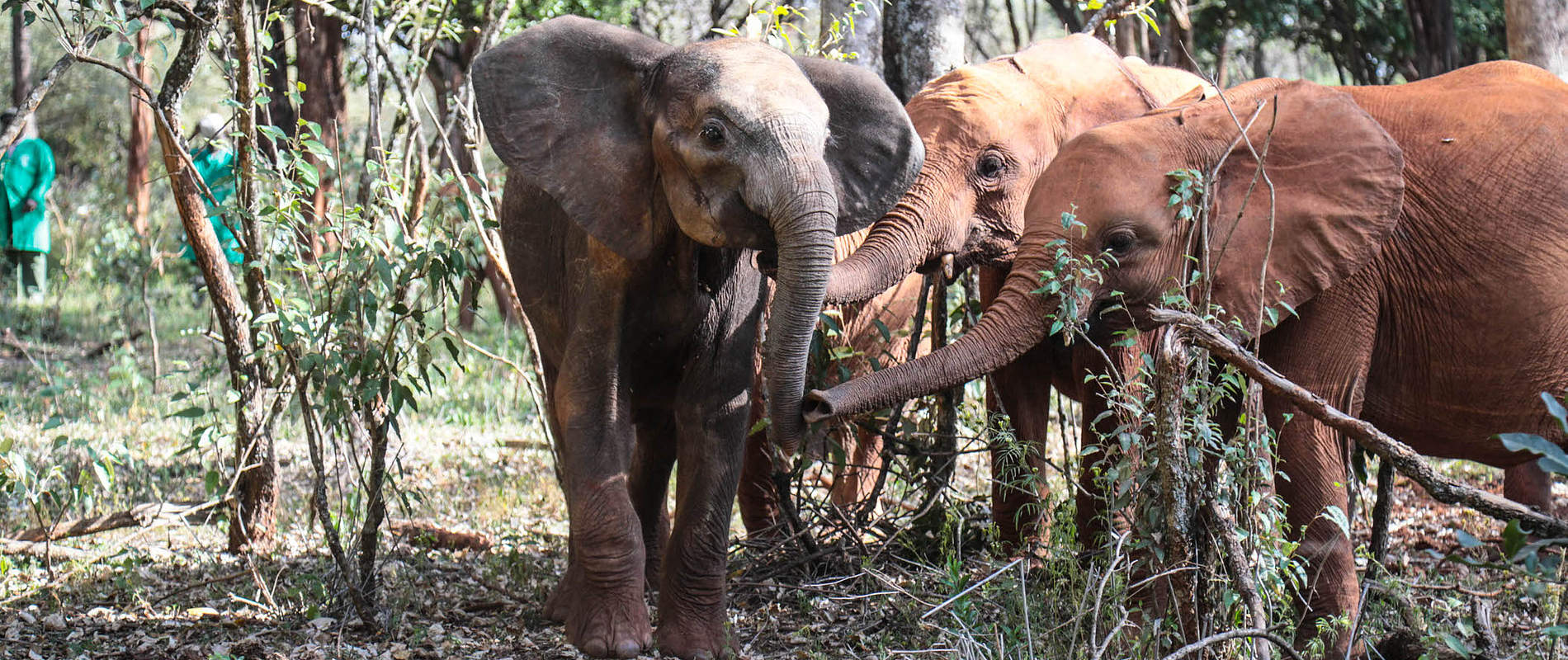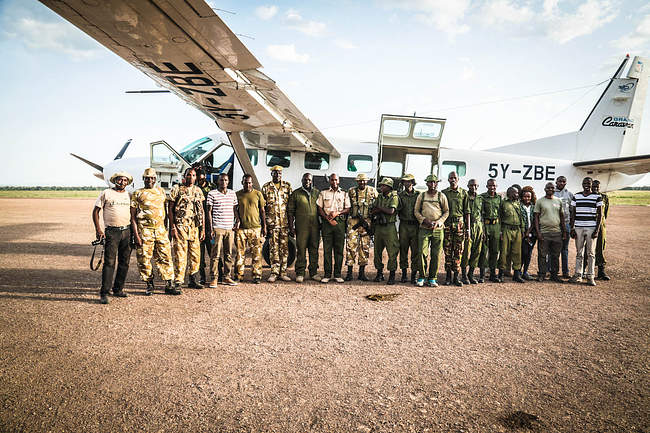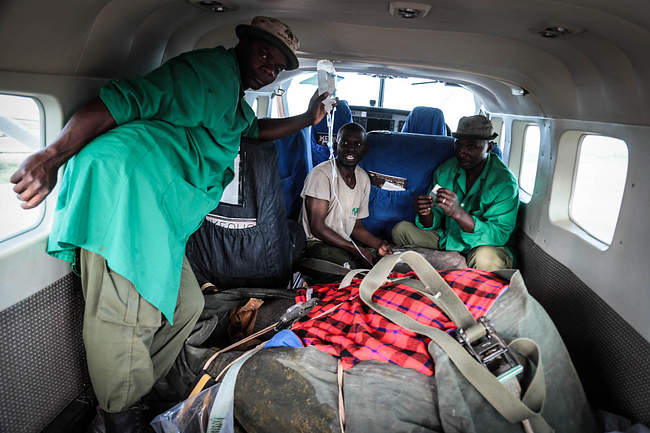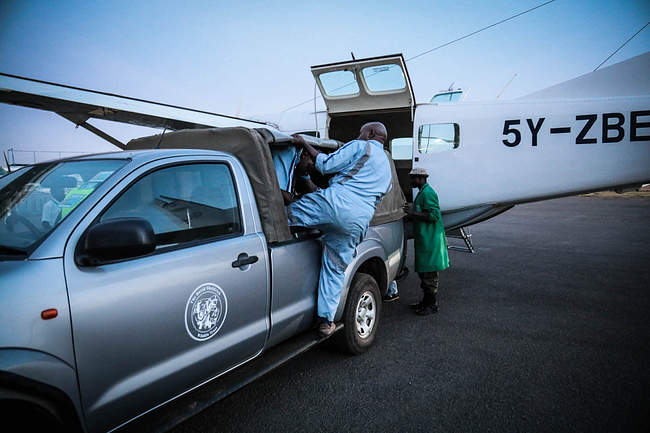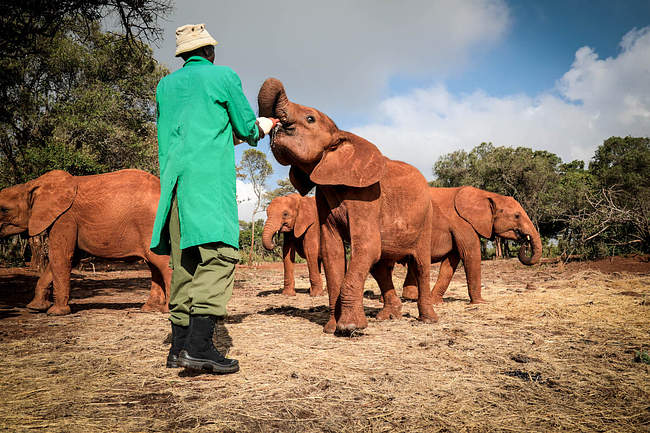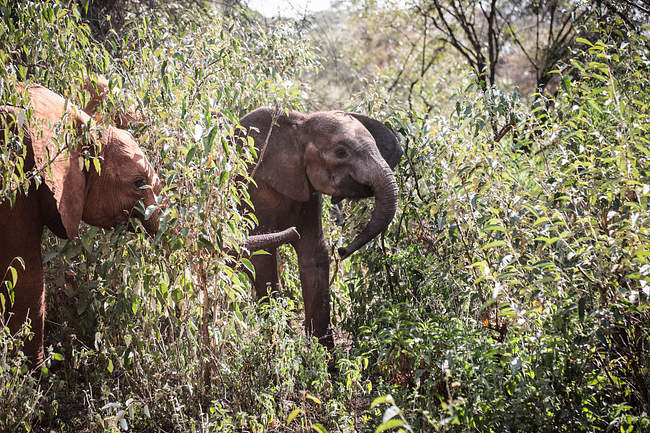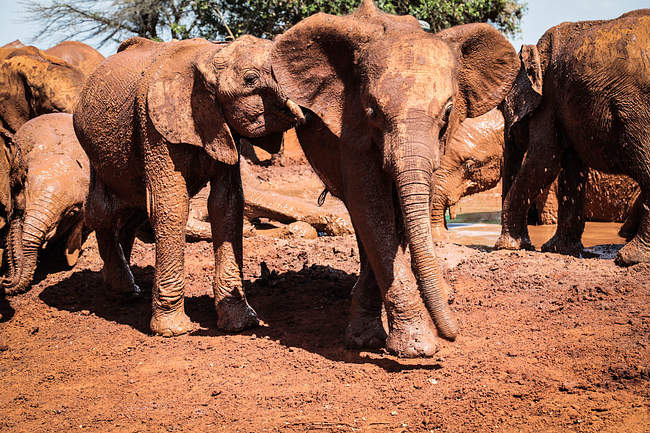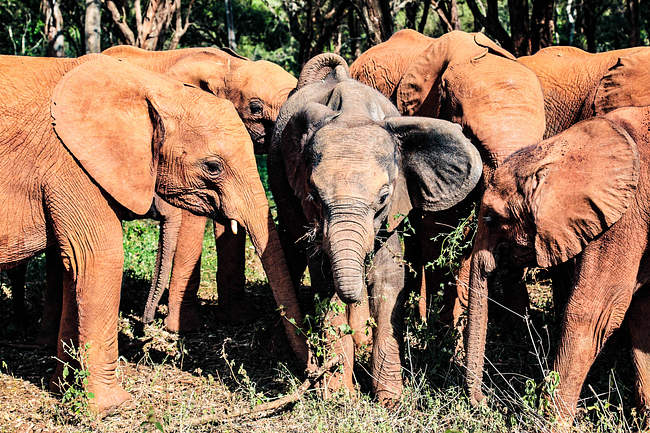On the 30th of January a call was received from the Kenya Wildlife Service (KWS), swiftly followed by a second from the SWT/KWS Mara Mobile Veterinary Unit, pertaining to an orphaned baby elephant whose progress had been monitored for over 2 weeks in the Oloisukut Conservancy within the Masai Mara, in the hope that she would be absorbed back into her herd.
Sadly this lone little baby remained abandoned throughout that time, despite many elephant herds wandering through that area. She would disappear for days, holed up in thickets out of sight of both the rangers monitoring her and the visiting public in the area, but would suddenly then reappear again days later, but always alone. Her condition was deteriorating and eventually in desperation the authorities were unanimous in their decision to rescue her to ensure she could have a second chance at living a long and happy life; with so many predators in the Mara, she was not going to make old bones otherwise.
Dr. Limo, the KWS Veterinary officer who heads our Mara funded Mobile Veterinary Unit, searched hard to capture her on the 30th of January but she was back in the thick undergrowth on rocky terrain that day so they waited until the following day, the 1st of February, in the hope that she would reappear again. She was eventually captured late in the afternoon and the rescue aircraft from Nairobi was coordinated so that there was little delay given the advancing late hour.

It took the efforts of many men, eager to provide safety and comfort for this unfortunate baby, and they were thrilled when the flight eventually departed from the Mara with Keepers and elephant, safely strapped into the travelling position onboard, at 6.00pm. IV drips were administered too because of her poor condition, and it was well past 8.00pm before the rescue team finally pulled into the Nursery compound within the Nairobi National Park with their precious cargo.
She was greeted by rumbles from all the stockades and stables with the resident Nursery babies well aware that a new arrival was in their midst. She was placed in a stockade next to Tagwa. Given the new orphan’s restless state, charging at the stockade gates, circling the area and pulling at the fresh cut greens, Tagwa too lost her nerve and became increasingly agitated because of the unfamiliar fracas. Eventually Tagwa began to reach through the bars between their two stockades to offer comfort to the new baby and from then on things began to calm down. We think she is approximately 22 months old, a little female who we have named ‘Nabulu’ which in the Maa Language means ‘growing’.
It took time for Nabulu to settle, for she had become so accustomed to being alone in such a fraught environment. Her ordeal and the reason for her being orphaned has not been verified, but there are many cases of human-wildlife conflict at the moment in the region due to the drying conditions and mounting pressure on precious natural resources, like water and food at this time, that we think that to be the most likely reason.

As the days passed Nabulu settled down, and began to suckle the Keeper’s fingers and looked forward to her milk bottles. We did battle with parasites for a good long time, and her one ear flopped forward; that coupled with her deteriorating body condition made her look very worse for wear.
We made sure she joined the others quickly and did not remain too long confined in her stockade, despite being rather wild still at the time, so the Keepers had it rough during feeding times because by this stage she was growing increasingly greedy for her three hourly feeds and would come charging in for milk with much pushing and shoving involved. We do have a very helpful gnarly tree in the forest which provides the ideal protection during feeding time for just these sorts of scenarios, and so it was that the ‘milk tree’ saved the day and was used until she became calm enough not to shove her Keepers any longer.
We watched with joy too as her ear popped back up, and her body condition improved and despite having very tiny ears, Nabulu is an attractive little girl. The early signs of post-traumatic stress, with her neurotic unpredictable behavior is now passing and a beautiful gentle elephant is emerging, comforted by and trusting of both the men and orphans around her. Her best friend Luggard provided companionship and reassurance in those very early days when she was too nervous to join the midday mud bath. We are pleased with her progress and she has now settled into the Nursery routine and is very much a part of all the activities.
